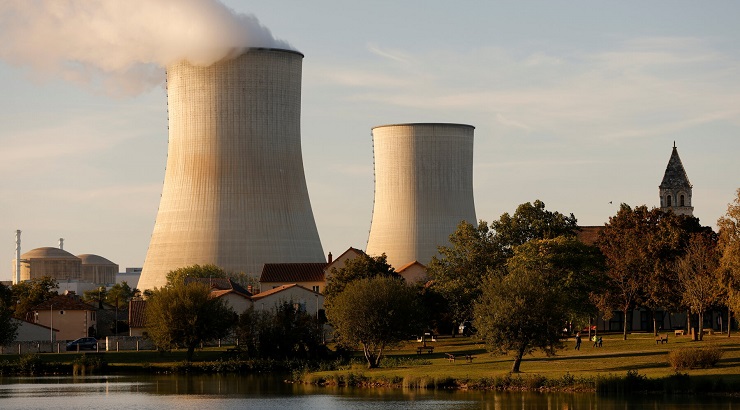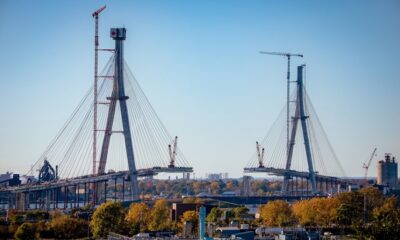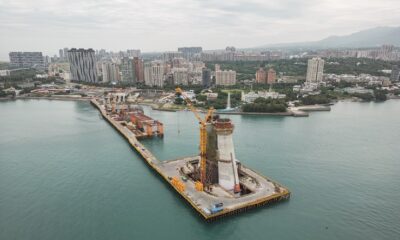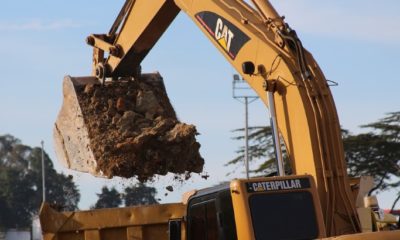Infrastructure
Major Boost for Kenya’s Sh630bn Nuclear Power Plan
Kenya and the US have signed a nuclear cooperation deal.

The planned construction of a $5 billion (Sh630 billion) nuclear power plant in Kwale or Kilifi has received a major boost following the signing of a nuclear cooperation deal between Kenya and the United States.
According to the White House, the US-Kenya framework cooperation agreement will set out how the two countries will cooperate on peaceful uses of nuclear sciences such as those in energy, medical, agricultural fields, among others.
“Signing Nuclear Cooperation MoU with Kenya [signals] that both parties seek to further our civil nuclear cooperation,” the White House said in a brief on the deal.
The new deal, which was signed during President William Ruto’s tour of the US last month, will also see Washington launch new civil nuclear studies with Kenya.
Powerful countries
The US now becomes the latest nation to join a growing list of powerful countries – including China, Russia, Slovakia, and South Korea – that have signed pacts with Kenya to assist Nairobi in building capacity to set up its first nuclear power plant.
Russia’s state-owned nuclear energy agency Rosatom and several Chinese firms have been wooing Nairobi for the supply of nuclear technology for the project.
Russia has been pushing to help African countries to build nuclear power plants.
Rosatom, which in October 2019 signed a deal with Rwanda to build a centre for nuclear science and technologies, is also helping Uganda to set up a nuclear plant.
In May 2022, the International Atomic Energy Agency (IAEA) gave Kampala the go-ahead to start construction of its first nuclear power plant.
1,000 Megawatts
Kenya is seeking to build a nuclear power plant with an initial capacity of 1,000 megawatts (MW) through a concessionaire.
The government aims to grow the nuclear plant’s capacity four times by 2035 under a build, operate, and transfer (BOT) model to avoid taking up costly debt.
In March last year, the Nuclear Power and Energy Agency (NuPEA) said it was conducting detailed analysis of two spots in Kwale and Kilifi counties to determine the best site for Kenya’s first-ever nuclear power plant.
RELATED: Kenya Eyes 2027 Kickoff for Sh785bn Nuclear Power Plant
According to Winnie Ndubai, NuPEA Director for Strategy and Planning, the detailed site study would pave the way for budgeting and construction by December 2030.
“Acquisition of national approval and Budget plan (will) be completed by 2023, and construction and full power operation of the Kenya Nuclear Research Reactor (is expected) by the end of 2030,” Dr Ndubai said.
The site analysis came less than two years after the State agency said it was on course to build Kenya’s first nuclear energy reactor in Tana River by 2027.
“The first nuclear power plant of 1,000 MW is expected to be commissioned by the year 2027 and is expected to grow to 4,000 MW by 2035,” NuPEA said in its mid-2020 submissions to the National Environment Management Authority.
The nuclear agency said it was shopping for the most ideal reactor for Kenya.
The modern nuclear reactors available in the market are large-sized devices in the range of 1,000 MW –1,750 MW with “proven design technology and performance records”.
RELATED: Kenya Unveils Blueprint for First Nuclear Power Plant
Several countries globally are increasingly betting on nuclear energy to meet their rising electricity demands – with a third of the nearly 30 nations considering nuclear power being in Africa, according to IAEA.
Egypt, Morocco, Ghana, Kenya, Uganda, Sudan, Niger, and Nigeria have engaged with the IAEA to evaluate their readiness to adopt a nuclear program, with Zambia and Tunisia considering the option.
South Africa, the only African country that operates a commercial nuclear power plant, is also planning to build a 2,500MW nuclear plant to enhance its power generation capacity.












